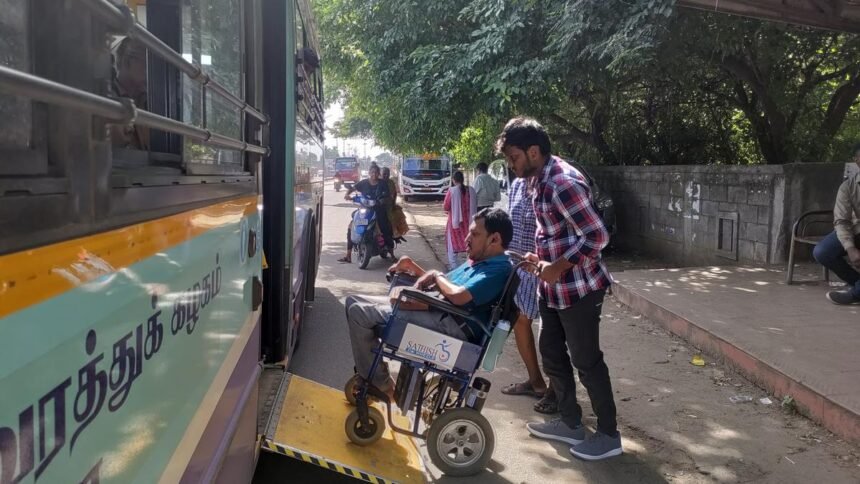Claims by India’s National Medical Council (NMC) that disability and queer rights are not included in its medical curriculum are the focus of an opinion piece. One step forward, two steps back: Urgent priorities for integrating disability and queer health into the medical education system Published online in Lancet Regional Health — Southeast Asia. The authors point out this continued and glaring absence, highlighting the need to introduce a comprehensive and inclusive medical syllabus.
The review also noted that globally, of the 110 Lancet committees, none are specifically focused on disabled people or queer people, with the exception of mental health and the Holocaust.
In India, the mandatory inclusion of the rights of persons with disabilities as competencies in the new Indian Medical Curriculum 2019 was highlighted by the United Nations Office in India as one of the 17 lighthouse initiatives during the mid-term review of the Sustainable Development Goals. “Currently, access to equal and inclusive health care for gays and lesbians remains a distant dream,” the authors note.
Protests on International Day of Persons with Disabilities in Kolkata.
Obstruction of human rights
One of the review’s authors, Satendra Singh of the Department of Physiology, Delhi University’s School of Medical Sciences and GTB Hospital, explains why exclusion at national and global levels will continue to hamper human rights. The Lancet says the committee is a science-led, international Multidisciplinary collaboration aimed at achieving transformational change, with a particular focus on policy and political action. “Their evidence-based recommendations provide key data that can influence policymakers to modify health policies or improve practice. Currently, there are 1.2 billion adolescents aged 15 to 24 years, accounting for 16% of the global population. A similar proportion (16% ) people with disabilities, and more people are joining this group every year,” Dr. Singh said.
India has one of the highest number of road traffic fatalities in the world (as of 2022); it is also considered the “diabetes capital of the world”, with complications such as gangrene, loss of limbs and eye diseases leading to blindness occurring at a high rate resulting in disability.
Historically, both disabled people and the transgender community have distrusted the medical establishment, Dr. Agenda’s goal of “leaving no one behind”. He said things would only change if the voices of these two communities were part of the Lancet Commission; otherwise, it would just be lip service.
India currently has the largest number of medical schools in the world, training future doctors and medical professionals. “Many of these graduates also represent the largest group of international medical professionals working in the United States and Canada. A compassionate medical graduate familiar with the health inequalities faced by vulnerable populations can play a critical role in dismantling long-standing structural and attitudinal barriers,” they explain.
Educating future healthcare professionals
Human rights lawyer Rohin Bhatt, co-author of the opinion piece, believes both groups are marginalized in health care settings. “They bear the brunt of discrimination and marginalization in healthcare settings. So as tomorrow’s doctors are educated, it is important that they do not repeat the mistakes of their predecessors and ensure that disabled and queer patients are not denied the opportunity to advocate for themselves rights, but also allows doctors to see these patients not as a set of symptoms but as a complete person,” he said.
The paper adds that in order to drive inclusivity, it is important to recognize that, among the various important factors that contribute to the perpetuation of social inequality, non-inclusive language is an area of concern.
“Prioritize inclusive language – clarity, consistency and respect – that recognizes diversity. It should not be left to just a few to advocate for this, but should be the responsibility of everyone, especially policymakers whose words have an impact on the entire ecosystem. The system has significant symbolic and substantive implications. Recently, India’s Supreme Court launched a manual debunking stereotypes about disability,” the newspaper said.
In India, the National Medical Council is a statutory body regulating medical education, professionals, institutions and research, established in 2020 under the National Medical Council Act, 2019, replacing the Medical Council of India. Opportunities for Care Provide high-quality, affordable medical education, promote equitable health care, encourage community perspectives on health, and enforce high ethical standards in care that flexibly adapts to changing needs.
“However, the current situation in India is not only a dereliction of the statutory duties of the National MC, but it is arguably an act that transcends the parent legislation under which it was constituted and is therefore prima facie illegal,” the paper states.
At the global level, the report adds, unless stakeholders from these communities are at the forefront of medical education reform, the World Federation for Medical Education’s fundamental standards and the call to “leave no one behind” in the 2030 Agenda will remain unavailable. accomplish.
Published – December 20, 2024 at 06:00 AM (US Standard Time)
